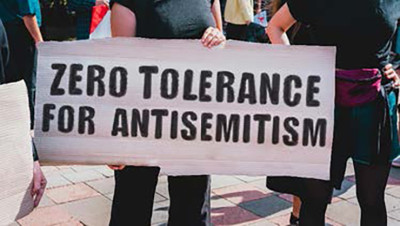
The second book of the Torah, Shemot, “Names,” talks about the stay of the descendants of Yaakov in Egypt, which lasted 210 years. During the last 116 of these 210 years, the Jewish People endured bitter enslavement. But the Almighty did not forget His covenant with Avraham and rescued the beleaguered nation from the land of their bondage.
For an entire year, the leader of the Jews, Moshe Rabbeinu, demanded, on behalf of the Almighty, that Pharaoh let the Hebrews go, but the mighty monarch of the world’s most powerful country would not relent. It was only after G-d unleashed ten plagues on his country, the last of which was the death of all the firstborn of the Egyptians, that Pharaoh was finally forced to concede, in the year 2448 after the creation of the world.
Shortly after their departure from Egypt, the Jews reached the Sinai Desert. At the time, they numbered 603,550 men aged twenty years and older, in addition to the women and children. The greatest event in the history of this people and of all mankind took place there: the Jews received the Torah, literally, “Instruction,” as to how a human being should conduct themselves in this world.
The Book of Shemot describes the miracles that accompanied the stay of the Jews in the desert and ends with a description of the construction of a portable tabernacle, known as the Mishkan, Ohel Moed, or the Tent of Testimony. In this sanctuary, the Almighty spoke with Moshe, and it was here that the Kohanim, the Jewish priests, performed the service of G-d as He had instructed.
The first weekly parashah of the Book of Shemot is also called the same name. It tells about the further stay of the Jews in Egypt after the death of Yosef HaTzaddik and his brothers.
During the lifetime of Yaakov’s twelve sons, the Egyptians treated the Jews with respect. The changes began after their death.
“Now Yosef died, as well as all his brothers and all that generation. The children of Israel were fruitful… and increased and became very, very strong, and the land became filled with them. A new king arose over Egypt, who did not know about Joseph” (Shemot 1:6-8).
As long as the Jews retained their distinct lifestyle and values, they were respected. But now a new generation has grown up which reasoned: “We live in the most progressive country in the world. Why shouldn’t we be like the civilized people amongst whom we are living?” Many of the Jews stopped performing circumcision, rationalizing: “Let’s be like the Egyptians.”
It was then that the Egyptians began to despise them!
This strange, irrational phenomenon has been observed in our history more than once. Patterns established over some 2,000 years of exile demonstrate again and again that antisemitism was at its worst in those countries where assimilation was most prevalent.
Think of Germany in the days of Hitler. I do not draw analogies between the life of our ancestors in Egypt and our immediate past, but everything said in the Torah concerns each of us personally.
“He [Pharaoh] said to his people, ‘Behold, the people of the children of Israel are more numerous and stronger than we are. Get ready, let us deal shrewdly with them, lest they increase, and a war befall us, and they join our enemies…” (Shemot 1:9-10).
“So, the Egyptians enslaved the children of Israel with back-breaking labor. And they embittered their lives with hard labor, with clay and with bricks and with all kinds of labor in the fields…” (Shemot 1:13-14).
The Egyptian authorities set up special labor camps to separate men from their families and thereby condemn the Jewish people to gradual extinction. In Shemot Rabbah, the Midrash describes how the government authorities manipulated the Jews to accomplish this goal without opposition.
First, a royal proclamation throughout the country declared that national interests demanded the urgent completion of several building projects that would house governmental agencies. To this end, it was expected that every adult male Egyptian volunteer one workday to the completion of the construction. Even Pharaoh himself and all his ministers were to take part in this day of heroic volunteerism.
Indeed, Pharaoh carried bricks all day long with such zeal that no loyal citizen could refuse to join in this national mission. However, as the “National Volunteering Day” ended, it somehow happened that the project was not fully finalized and required the following day to reach its mark. Yet, the same situation presented itself the next day ultimately necessitating the authorities to appoint Egyptian overseers, under whom the Jews continued to work.
At the next stage, the Jews were told: “You live far from your place of work and spend a lot of time and energy on the road. The government is coming to your aid by building housing for you near the construction sites.”
So, the Jewish men were torn away from their wives and children, and their families were left without any means of subsistence.
In the next stage of the nefarious campaign to rid the Land of the Nile of Jews, the Hebrew midwives were summoned to appear before Pharaoh. The absolute, tyrannical ruler of the most powerful country of the region commanded the midwives to murder each male newborn child on the spot:
“When you deliver the Hebrew women, and you see… if it is a son, you shall put him to death… The midwives, however, feared G-d; so, they did not do as the King of Egypt had spoken to them, rather they enabled the boys to live. So, the King of Egypt summoned the midwives and said to them, ‘Why have you done this thing, that you have enabled the boys to live?’ And the midwives said to Pharaoh, ‘Because the Hebrew women are not like the Egyptian women, for they are skilled as midwives; when the midwife has not yet come to them, they have [already] given birth.’ G-d benefited the midwives, and the people multiplied and became very strong” (Shemot 1:16-20).
The Talmud says that these noble women not only saved the baby boys, risking their own lives, but also worked to help people in need by bringing them food.
The Sages speak highly of all the Jewish women in Egypt and the heroic role they played in perpetuating the nation during this period of sadistic, heartless persecution. Even though their husbands were enslaved and therefore could not provide for their families, there was not a single case of abortion among their wives.
On the contrary, women endeavored to have more children and keep them alive. They gave birth secretly, in the fields, and the children were hidden. In addition, the women caught fish, which swarmed in the Nile, and brought them to their husbands to somehow assist. There is no record of even a single case of intermarriage of a Jew with an Egyptian.
These women were genuine heroines, and it is thanks to them that the Jewish people survived that difficult time.
The midwives were commanded to murder Jewish male newborns and risked their lives by disobeying Pharaoh’s orders. Their awe for the Creator surpassed their fear of the tyrannical Pharaoh. As a reward, the Almighty “made houses for them” (Shemot 1:21).
What does that mean? G-d gave these two women, Yocheved and her daughter Miriam, dynasties that would last forever. Yocheved’s son Aharon, would become Israel’s first Kohain Gadol and the forefather of the nation’s Kohanim. Miriam had another son, the future leader of the Jewish people, Moshe. All his descendants who were part of the male line are Levi’im.
As for Miriam, the Talmud says that King David, first of Israel’s Davidic dynasty, was her descendant.
The parashah concludes by relating how Moshe, at the behest of the Almighty, appeared before Pharaoh and demanded the release of the Jewish people so that they might serve the Almighty in the desert.
In response, Pharaoh intensified the suffering of the Hebrew slaves by ordering that an even greater workload be imposed.
After Moshe pleaded to the Almighty that his confrontation with Pharaoh had only increased their suffering, we read: “And the Lord said to Moshe, ‘Now you will see what I will do to Pharaoh, for with a mighty hand he will send them out, and with a mighty hand he will drive them out of his land’” (Shemot 6:1).
By Rabbi Yitzchok Zilber ztk”l,
Founder, Toldot Yeshurun
The Jewish Nation Has Always Been Despised
Typography
- Smaller Small Medium Big Bigger
- Default Helvetica Segoe Georgia Times
- Reading Mode













